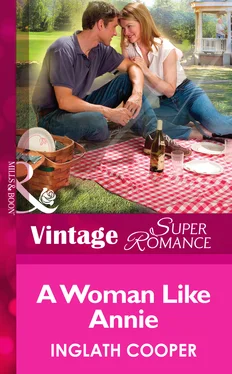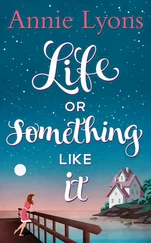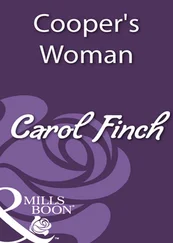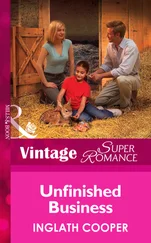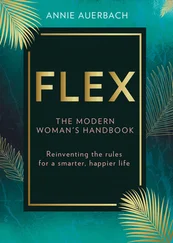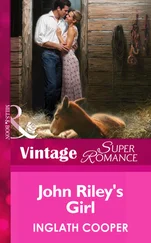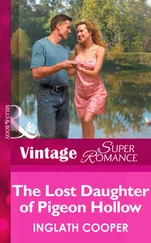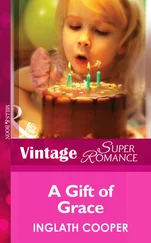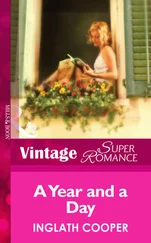Music floated out from behind the building. Bluegrass. It had been years since he’d heard the twangy notes of a fiddle. Homesickness knifed through him with an unexpected edge. The sound brought with it a deluge of memory, fiddler’s conventions he’d gone to as a boy with his dad who had loved the folk music and taught Jack to appreciate it. Booths set up with candy apples and hot cakes, Jack’s father letting him use his own money and his own judgment in buying the treats. Jack had always gone home with a stomachache. Joshua had believed in letting his son make his own mistakes, reasoning that was the only way he would remember them.
The factory itself was an enormous brick building, tall pane windows letting in plenty of natural light. Joshua Corbin had wanted to give his employees an appealing place to come to work every day. “Light affects a man’s soul, son. We weren’t made to live in the dark.” The words echoed in Jack’s head as if he’d just heard his father say them.
He followed the music, rounding the corner of the building. Hundreds of people filled the grass yard in front of him. Adults—young, old—teenagers and toddlers. What looked like the whole town. He wasn’t sure what he’d expected, but not this. Laughter. Smiling faces. Some flat foot dancing up front by the bluegrass trio. On the stage hung a banner that read: C.M. THANK YOU FOR THE GOOD YEARS.
Jack blinked, surprised.
Fifty feet or so out from the music were tables of food. He looked down at the basket of chicken in his own hand and felt like an intruder at someone else’s party.
But a round-faced woman with soft gray hair bustled up just then, taking the offering from him. “Come right on in. Um, this smells good. You make it yourself?”
“Had a little help,” he said.
“What’s your name, young man?”
“Jack,” he said, feeling like the Grinch about to steal Christmas.
“I’m Ethel Myers. Retired now. Worked here for twenty years, though. Still miss it.”
He could do little more than nod.
She waved him inside. “Go in and get comfortable now. We’re just about ready to eat. Iced tea and lemonade set up on those tables over there.”
“Thank you, ma’am.”
“You’re surely welcome,” she said and waved a greeting to another latecomer.
Jack weaved his way through the crowd, recognizing some faces, sure he heard someone murmur his name. He picked up a glass of sweet tea from the table Ethel had directed him to, then stood there on the periphery of the crowd, wondering at the jovial tone of the gathering. His understanding from Annie had been that this was a farewell picnic of sorts for those who had worked at C.M. He’d fully expected to be the target of seriously grim head-shaking. Had maybe even brought himself here because on some level, he thought he deserved their ire for not giving the factory another chance.
There wasn’t any to be found.
This felt more like a celebration. Balloons in a rainbow of colors bracketed the tables set up around him, all of which were loaded with so much food they practically groaned beneath the weight.
“Well, I’ll be darned.”
A man in bib overalls and a red plaid shirt stuck his hand out to Jack and said, “You’re Joshua’s boy, aren’t you?”
Jack shook the man’s hand and nodded. “Yes, sir, I am.”
“Woulda known you anywhere. Look just like him.”
The statement was made with a thread of surprise running through it, but mostly gladness, which startled Jack more than a little.
“I’m Henry Sigmon. Your daddy hired me, let’s see, nineteen years ago, I guess. Company wasn’t such a big thing then. But I needed a job, and he gave me one. Been here ever since. I remember him bringing you to the Christmas lunches. Sure was proud of you.”
“Lot of good food at those lunches.”
Henry gave a you-better-believe-it nod. “We’ve got some unbelievable cooks around here.”
Jack managed a smile, the man’s recollection stirring up an unexpected pang inside him. Even then, he had known his father was proud of him, and there wasn’t anything else in Jack’s life since then that had created that same sense of worthiness. Not a degree from Duke. Nor the career he’d made for himself.
“Wish this had ended up differently, you know?” Henry’s smile had disappeared, in its place obvious disappointment. “For the last couple years, most of the people here have done what they could to lighten the load. Taking regular pay for overtime hours, closing down the day-care center your father built.”
“Day-care center?” The question was out before Jack had time to wonder what the man would think about his not knowing such a thing.
Henry looked surprised but said, “Yeah. Built about ten years ago, I guess. Sure did make a difference for a lot of families. Moms and dads could go spend their breaks and lunches with their children. Not having the expense of child care made working more realistic for a number of people. But no doubt it took a lot to keep it running, so everybody voted to close it six months ago since the company just seemed to keep losing money.”
Henry shook his head. “Wish we could have pulled it out for you. Would have meant a lot to a good many of us. Being able to do that for your father. It would’ve been a nice way to pay him back for everything he did for us.”
Jack tried for a response, but the words stuck in his throat. Again all he could do was nod. None of what Henry Sigmon had just said should have made any difference to him. But it did somehow. He’d convinced himself there wasn’t anything personal about the closing of this factory. He had a feeling he was going to be very, very wrong.
ANNIE SPOTTED HIM from the other side of the crowd.
It would have been impossible to miss him.
First of all, he was taller than nearly every other man at the picnic. Second, he looked about as comfortable being here as a cat in the middle of a dog show.
Her first inclination—the one she would have followed last night while lamenting the fact that anyone could be heartless enough to just auction off this place—was to let him feel the pinch of that a while longer.
Her second—the one that could not deny that Jack Corbin didn’t seem like a bad guy, just one misled—had her weaving her way through the crowd.
She tapped him on the shoulder. “You made it,” she said.
He turned, looking relieved to see her. “Yeah. Even brought some chicken.”
“No pancakes?”
A smile touched his too-appealing mouth.
She took pity on him. Couldn’t help it. She’d invited him here, not sure what his welcome would be. He didn’t strike her as a man to be cowed by much in life, but in his shoes, most people would have been.
“How about saying hello to a few people?”
“Sure,” he said with a nod.
Annie led the way to a group a few yards away. She put a hand on Estelle Thompson’s shoulder and said, “Estelle, this is Jack Corbin.”
Estelle stepped back to allow the two of them entrance into the circle. “Well, I’d recognize you anywhere,” Estelle said, beaming a smile at Jack. “I’m sure you don’t remember me, but I started working here shortly after your daddy built on the new section.”
“Yes, ma’am,” Jack said. “It’s nice to see you.”
For the next fifteen minutes, Annie introduced and re-introduced Jack to as many people as she could. Maybe she could make him see that real people with real families were going to be devastated by the closing of this factory.
Several dozen introductions later, Annie tipped her head toward the end of the field opposite the bluegrass band where Tommy and a group of boys were hurling baseballs at one another’s gloves. “Say hi?”
Looking relieved, Jack nodded and followed her through the crowd of people. They stopped a few yards short of the boys’ circle.
Читать дальше
